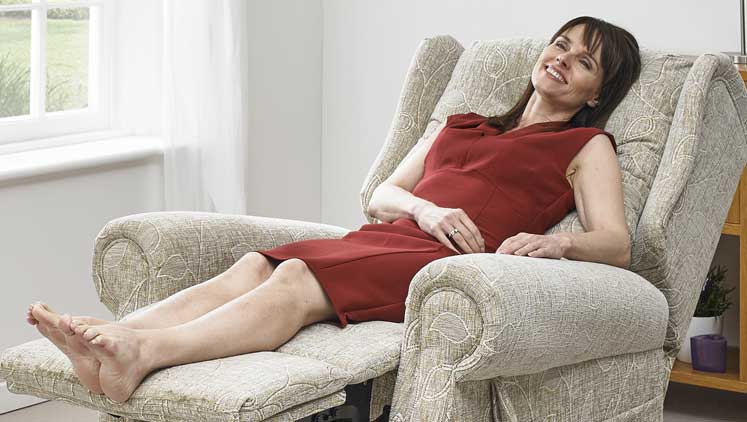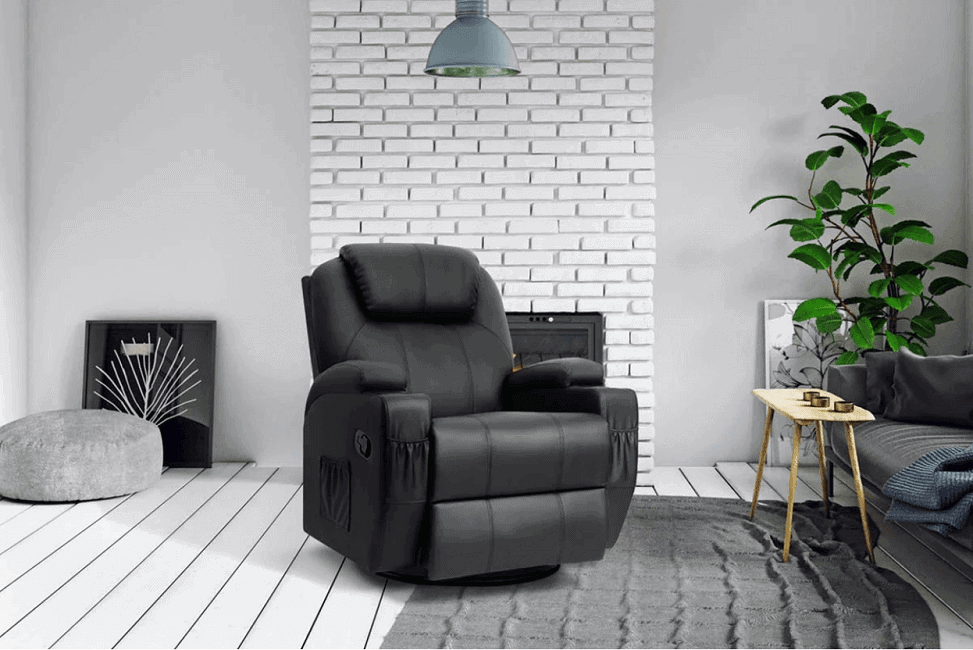
Disclosure: This site is reader-supported & contains affiliate links. We may earn a commission through products purchased using links on this page. Learn more
Over the years, recliners have brought up more than a few questions and debates. Questions like: Is it bad to sleep in a recliner chair? Can I sleep in a recliner chair every night?
Well, like most controversial topics out there, these questions have no definite answers. The answers are split. This is because there are as many reasons why you shouldn’t as there are why you should.
It is left to you as an individual to make a decision. However, your safety and comfort are the best approach to make the decision.
We have gathered information on both the potential benefits and the risks of sleeping in a recliner. We have also offered a few helpful tips on how to sleep on a recliner.
Let’s get right into it. Shall we?
Table of Contents
Potential Benefits of Sleeping in A Recliner
In some situations, sleeping on a recliner is a better option beneficial than sleeping in a bed. Why? Let’s find out.

Reduces Symptoms of Acid Reflux
When food is being digested, the gateway between the esophagus and the stomach (Esophageal sphincter) remains shut. However, if you have GERD, the gateway doesn’t shut completely, allowing the acid to back up your esophagus, giving you a burning sensation. This burning sensation is known as heartburn.
Most people experience heartburn at night when they lie on the bed. This is because the gravity halts pushing food away from the esophagus.
Sleeping on a recliner will keep you in an upright position keeping the stomach contents away from the esophagus and thus releasing the heartburn symptoms.
Reduces Symptoms of Sleep Apnea
Sleep apnea is a sleep sickness caused by constant halts of the breathing. Obstructive sleep is the most common type of sleep apnea.
This is where the throat’s muscles relax and block the airways. The blockage often leads to snoring and sometimes sudden awakenings at night.
Sleeping in a recliner elevates your head helping to manage and ease obstructive sleep apnea.
Useful When You Are Pregnant.
Many pregnant women often suffer from back pains, acid reflux, and obstructive sleep insomnia. Sleeping on a recliner can help reduce the symptoms.
But please remember that doctors that pregnant should sleep on the left side.
Relieves Back and Neck Pains
If you have severe back and neck pains, sleeping in a recliner will give you a bit of relief as it gives better back and neck support than the bed. It also reduces the pressure on the spine, allowing your muscles to rest. Getting off a recliner is also easier than getting off a bed.
Comfort After Back Surgery
If you have just come from surgery, sitting on an upright chair could be a bit strenuous. Getting on and off the bed can also be a pain. In this case, a recliner can be the better option. It’s, however, important to ensure that your recliner offers enough lumbar support to avoid putting more stress on your back.
Fatigue and Circulatory Problems
Sleeping in a recliner allows you to raise your legs above the heart level. This improves your blood circulation and thus helping you to relax.
Precautions Of Sleeping In A Recliner
More often than not, sleeping in a recliner is safe. However, it comes with a fair share of risks.
So, what are the disadvantages of sleeping in a recliner?
Joint Stiffness
While sleeping in a recliner, your hips and knees are bent all night. With time, this can lead to hamstrings, calves, and tight hips, which are likely to affect your posture negatively. Tightening of the muscles also increases the possibility of falling.
Deep Vein Thrombosis
A lot of people ask: Can sleeping in a recliner cause a blood clot? The answer: yes!
When you sleep in a recliner, your joints will be bent and motionless for hours. Lying in this position regularly increases the chances of developing a blood clot known as Deep Vein Thrombosis (DVT)
This life-threatening clot usually develops in the legs but can also form in any other part of the body. To reduce your chances of developing DVT, you should wear compression socks.
Impaired Blood Circulation
Sleeping in a recliner for long hours with your knees bent can hinder your blood vessels’ function on the lower body. To be exact, it may jam the blood flow in an artery found behind your knee.
Leg Swelling
If you sleep in an upright position for a prolonged period, your muscles are inactive, thus obstructing blood circulation in the lower body. . the blood doesn’t flow upwards and thus accumulates in the veins, making them swell.
How to Sleep In A Recliner
If you find sleeping in a recliner more comfortable than the bed, you should ensure you take all the necessary precautions not to risk your health. Your comfort is also of the essence. Here are tips for sleeping in a recliner.
- It would be best to get an ottoman to support your legs as you sleep or wear compression socks to prevent DVT and swelling of the feet.
- Consider using a pillow for additional neck and back support.
- You might want to recline your chair to a comfortable position before you sleep. If yours is a power recliner, set it to 110-130 degrees.
- Avoid sleeping in an upright position as it puts pressure on your spine. However, if you have respiratory issues, your head should be upright to allow you to breathe properly.
- If your recliner is made of leather, consider putting a sheet over it to avoid sweating.
- You should have enough blankets to keep you warm throughout the night.
- Try to change lying positions often to avoid putting too much pressure on one side.
Wrapping It Up
So, is it bad to sleep in a recliner chair? Well,as earlier stated, sleeping or not sleeping in a recliner is a personal choice. Sometimes you may not help it, though! To be safe, follow the tips we have shared on how to sleep in a recliner.
Recommended Reading

How Much Do Recliners Weigh?
Are you planning to buy a recliner but you want to be sure how much it weighs before you can make your purchase? This article answers the question, how much do recliners weigh in detail.

What Are the Different Types of Recliners?
If you want to learn more about different recliners that will suit your comfort and luxury, you are in the right place. This guide offers the different types of recliners currently in the market.

How To Install Recliner Battery Pack
This article is for you if you’re wondering how to install recliner battery pack on your furniture or if you want to replace the old battery pack.

The Ultimate Guide on How to Fix a Lazy Boy Recliner
Lazy Boy recliners are a popular brand of recliner. If you have a Lazy Boy recliner, you may have problems with it. Here's how to fix a Lazy Boy recliner.
